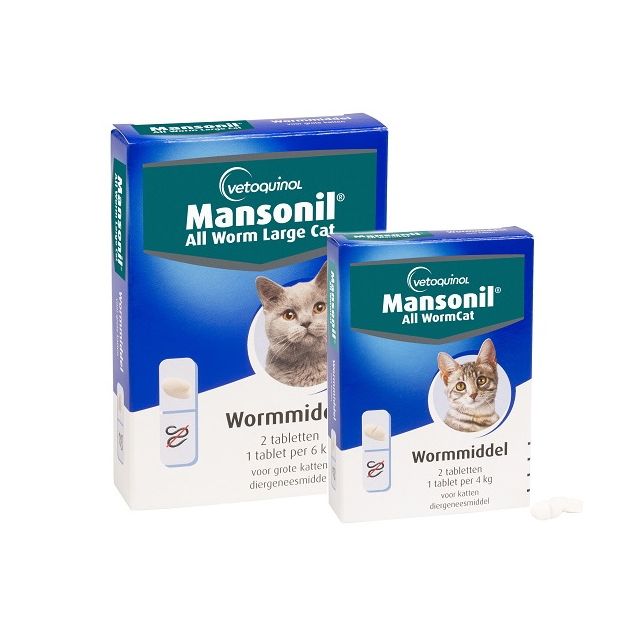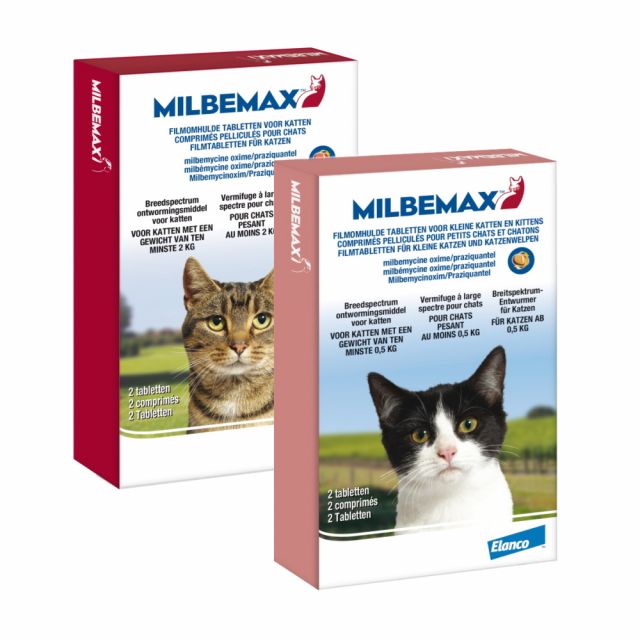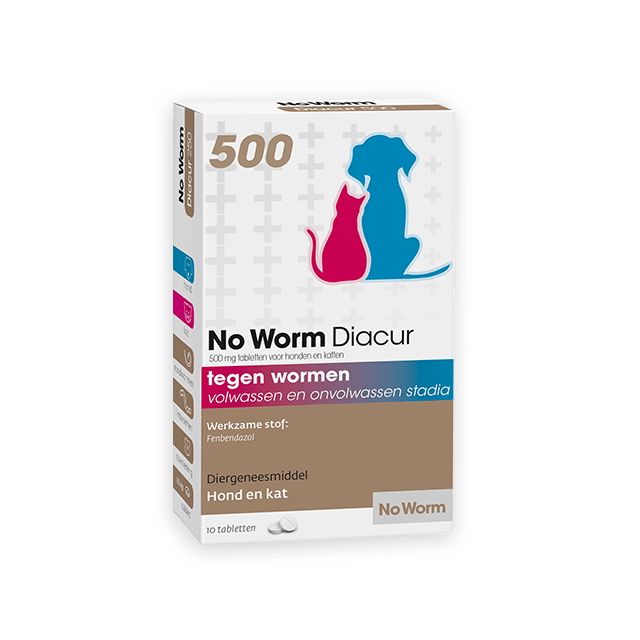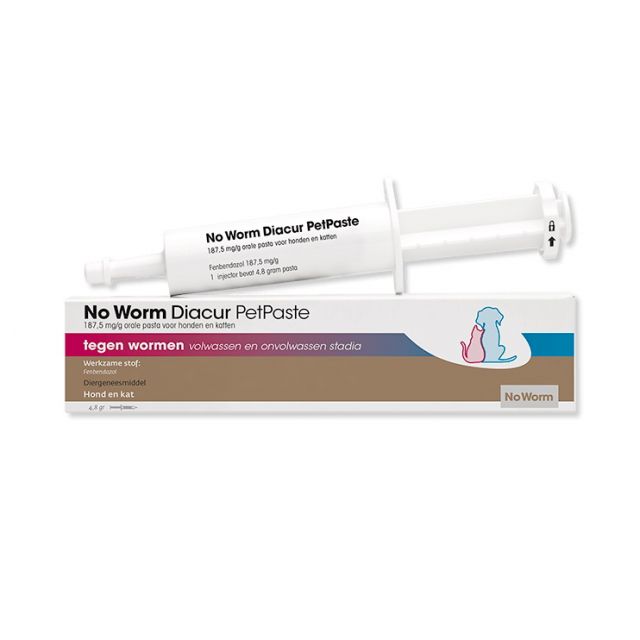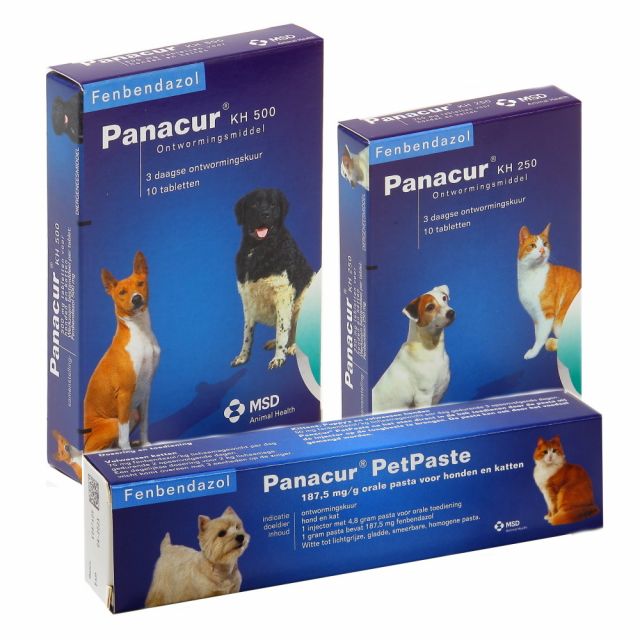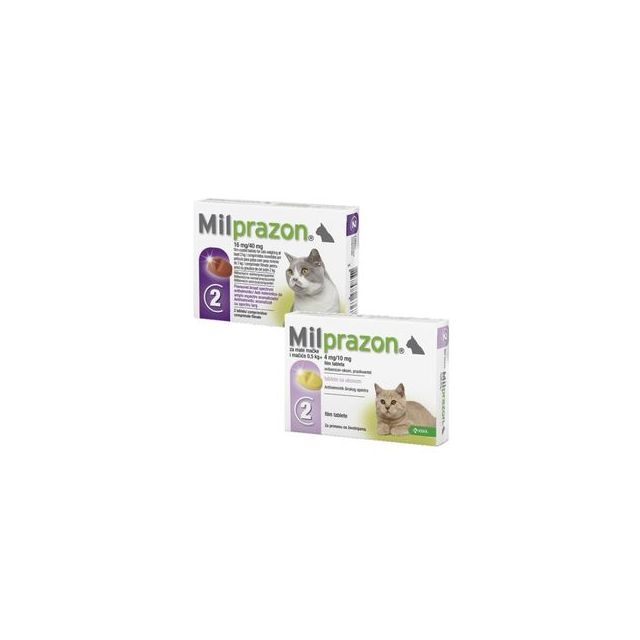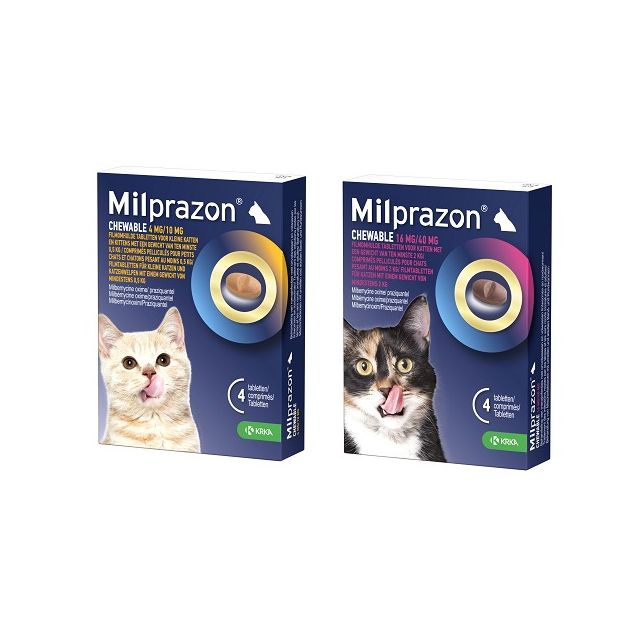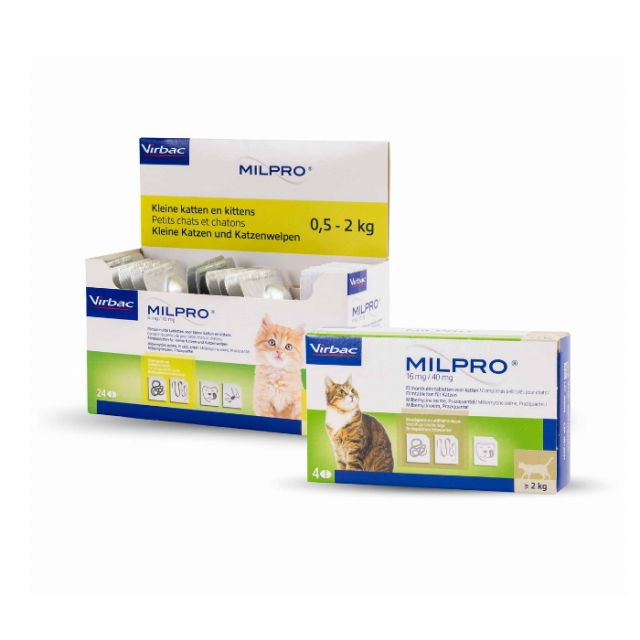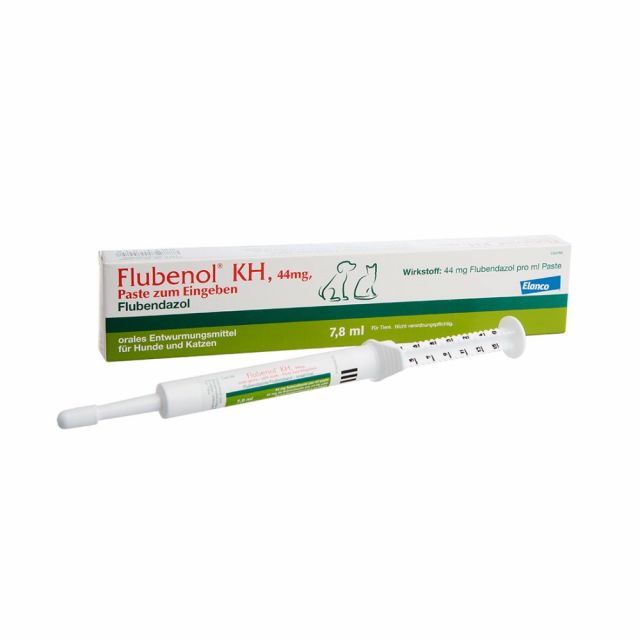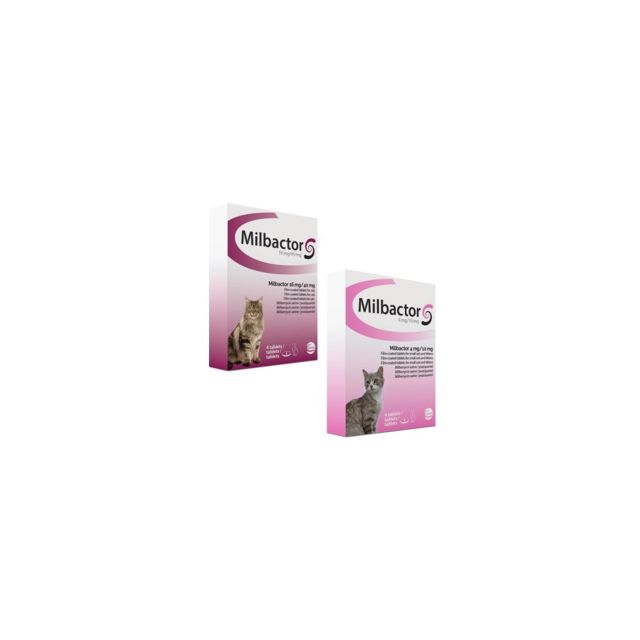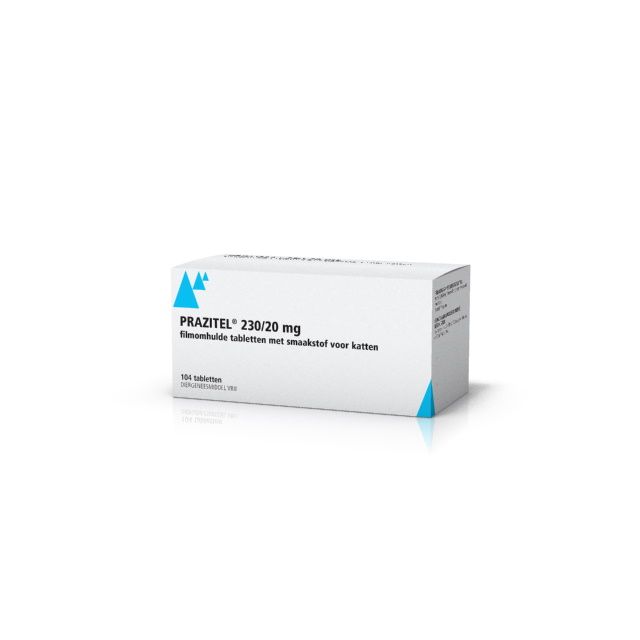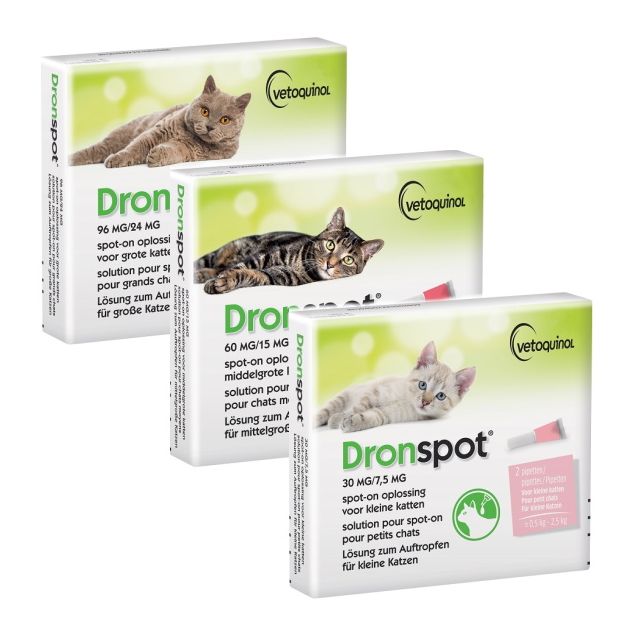Worms in cats
Many cats sooner or later encounter worms. Because worms and their eggs are widespread in the environment, it is practically impossible to prevent worms in cats, especially if they go outside. When your cat is infected with worms, this is often not visible externally. Symptoms usually only appear in the case of a severe infestation. Symptoms vary depending on the type of worm. Possible symptoms of a worm infestation include:
- Diarrhea, possibly with blood in the stool.
- Weight loss.
- Dull coat.
- Swollen abdomen.
- 'Spaghetti-like' worms (roundworms) or 'rice grains' (tapeworms) in the stool or vomit.
- Vomiting.
- Coughing, difficulty breathing, heart rhythm disturbances (heart and lungworm).
- Itching around the anus (tapeworm).
- Poor condition, lethargy.
- Anemia
Which worms can my cat get?
There are several types of worms that your cat can get:
Roundworm
The most common type of worms in cats are roundworms. A roundworm infection most often occurs in kittens, who ingest worm eggs through mother's milk. Cats can also pick up these worms by eating infected rodents or licking/eating contaminated soil. When a cat is infected with roundworms, symptoms may include a dull coat, lethargy, diarrhea, weight loss, and a swollen abdomen. Sometimes small white worm segments or longer 'spaghetti-like' worms can be seen in the stool or vomit.
Tapeworm
Cats can become infected with tapeworm by eating infected rodents or ingesting a flea contaminated with tapeworm. It is therefore important to also ensure good flea control for your cat. Symptoms of tapeworm often consist only of the presence of worm segments (resembling rice grains) and/or itching around the cat's anus.
Lungworm
A cat can contract lungworm by ingesting the larvae of the worm through snails, rodents, mice, or birds. An infection with cat lungworms often causes few complaints, but it is important to treat these worms to prevent serious problems. Symptoms of a severe infection include coughing, difficulty breathing, and weight loss.
Heartworm
Heartworm is mainly found in South and Eastern Europe and is transmitted by mosquitoes. If your cat goes on vacation, it is advisable to consider this, and you can get advice on heartworm prevention from your veterinarian. Heartworms live in the heart and lung arteries of the cat. In cats, an infection often occurs without symptoms, but an infection with heartworms can cause sudden death, difficulty breathing, or heart failure. Symptoms often occur months after infection.
Hookworm
Adult cats can become infected by ingesting hookworm larvae in the environment. Kittens often become infected with this type of worm through mother's milk. Hookworms cause symptoms such as bloody diarrhea, anemia, and weight loss.
Worming treatments for cats
Preventing worms and deworming your cat can be done with various types of worm treatments, so there is always a worm treatment suitable for your cat. Not all worm treatments work against all types of worms. Roundworms and hookworms are targeted by most treatments, but tapeworm, heartworm, and lungworm only by specific treatments.
Deworming paste
Deworming paste is a commonly used method, especially for kittens. The paste can be given directly into the mouth or mixed into food. When administering the deworming paste, it is important to administer the correct amount based on your cat's weight. Most worm pastes have a convenient adjustment ring for this purpose. Flubenol and Vitaminthe deworming paste work against roundworms, tapeworms, and hookworms. Panacar PetPaste also kills giardia parasite in addition to roundworms and hookworms.
Deworming tablets
You can also deworm your cat with tablets. It is important to administer the correct dosage based on your cat's weight. There are various tablets available for kittens as well as small and large adult cats from Milbemax and Milpro. These worm tablets work against all worms, including tapeworm, heartworm, and lungworm.
Pipette against worms
If it is difficult to give your cat tablets or paste, you can also deworm your cat using a spot-on (pipette for between the shoulder blades). Dronspot cat works against all worms except heartworm and lungworm. Advocate and Stronghold have a very broad spectrum of action: they tackle all worms except tapeworm and also work against fleas and (ear) mites. Nexgard Combo goes even further, protecting against all the aforementioned parasites as well as tapeworms and ticks. Advocate, Stronghold, and Nexgard Combo are available only with a prescription from your veterinarian.
How often should I deworm my cat?
The risk of a worm infestation varies per cat. Cats that never go outside (not even in the garden) have a much lower risk than avid hunters or cats fed raw meat.
For indoor cats that do not eat raw meat, it is recommended to deworm twice a year with a broad-spectrum treatment, which means a treatment that works against both roundworms and tapeworms, or to have stool examined twice a year by the veterinarian and deworm accordingly. If your cat goes outside and/or occasionally eats raw meat, it is recommended to deworm her at least four times a year with a broad-spectrum treatment (or have the stool examined). If a worm infestation is diagnosed, follow your veterinarian's advice.
Since kittens can be infected via mother's milk, they should be dewormed more frequently at the ages of 3, 5, 7, and 9 weeks. Kittens should then be dewormed monthly until they reach 6 months of age. When your kitten is 6 months old, the deworming schedule for adult cats can be followed.
Since some tapeworms are transmitted by fleas, it is advisable to treat your cat against fleas in addition to deworming. If you want to know everything about worms in your cat, visit the website of ESCCAP, the European Advisory Board on Parasites in Dogs and Cats. If you have any questions about worms in your cat or about products from Pharmacy4Pets, please contact us.

